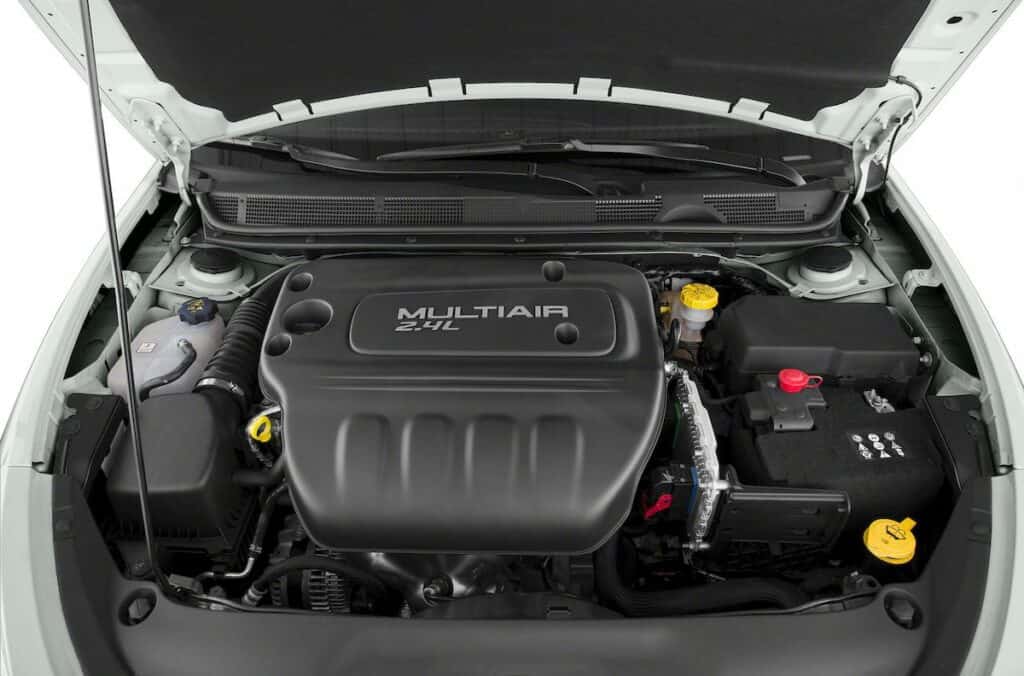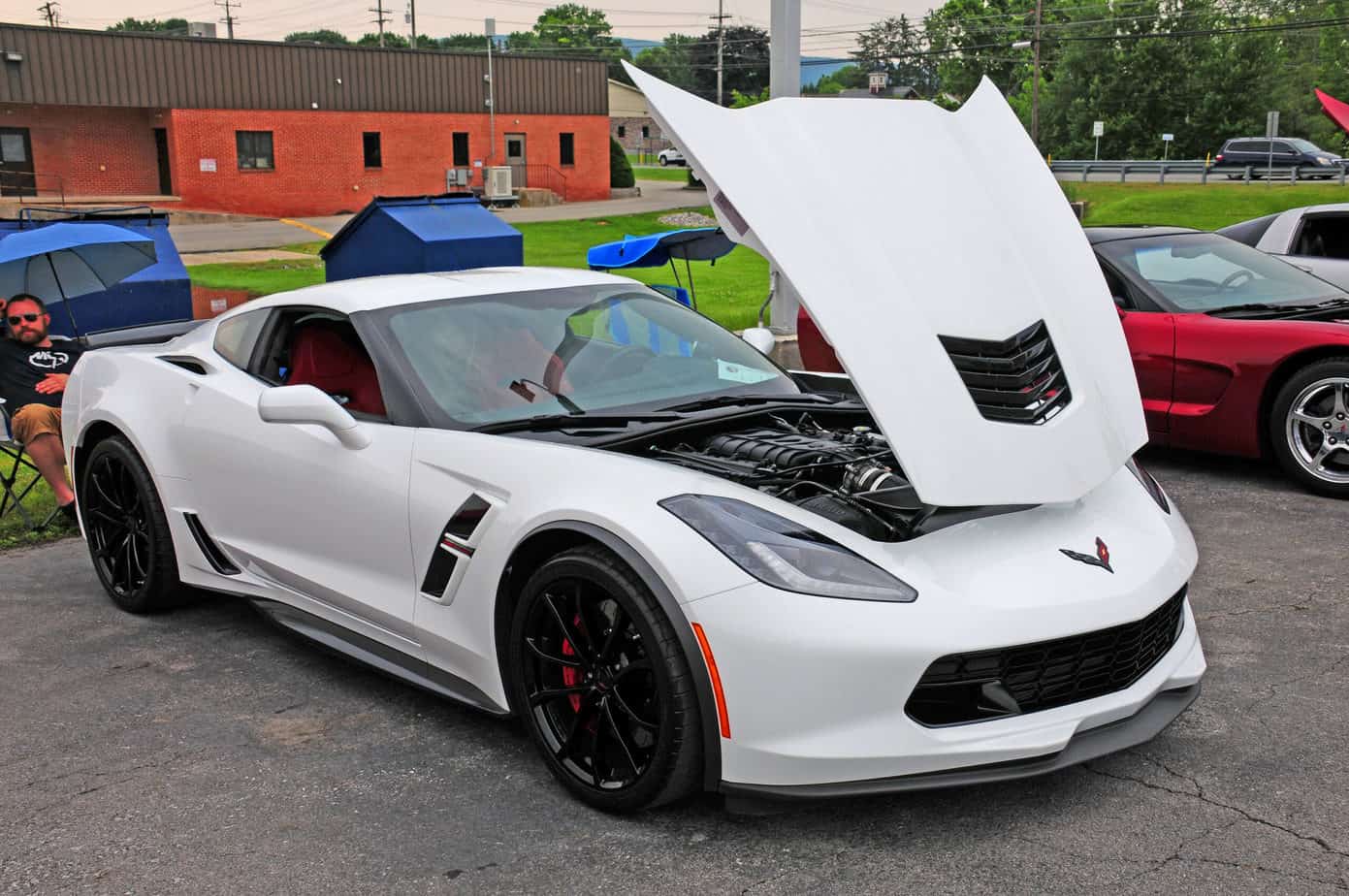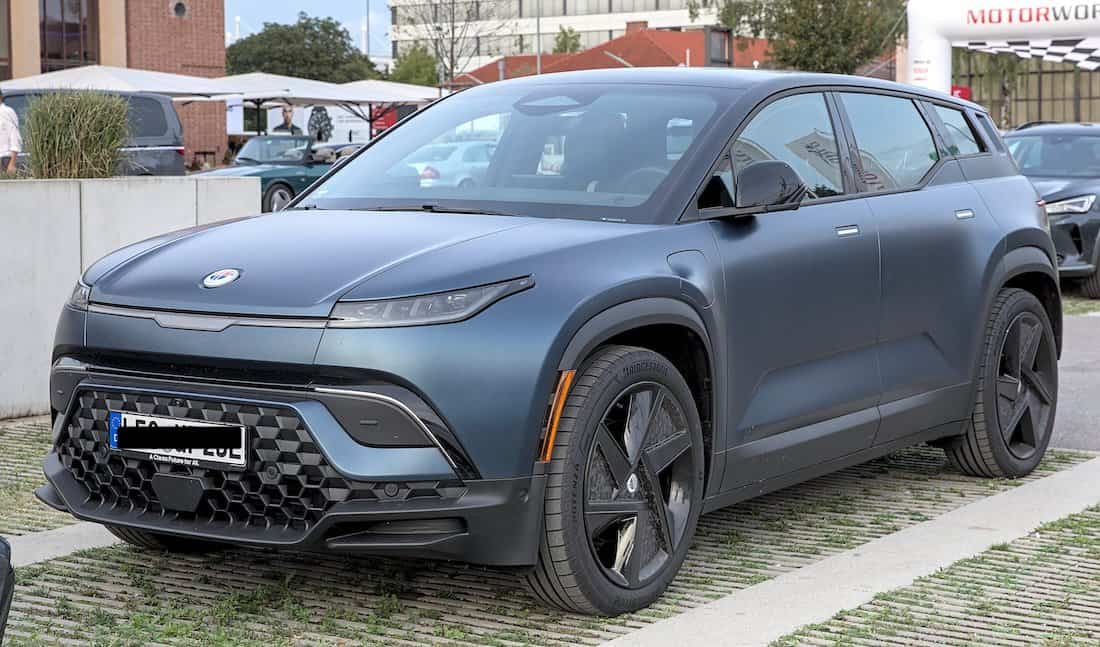On March 23, 2022, the parties filed a joint motion for preliminary approval of a nationwide class action settlement, which will potentially impact millions of vehicles with the Tigershark engine. The motion for preliminary settlement approval was granted on June 7, 2022. Notice of that settlement has just been mailed out.
Current or former owners of 2013–2020 Fiat Chrysler vehicles with a Tigershark™ 2.4 Liter engine in California need to pay close attention to their rights.
According to allegations in a pending lawsuit, the Tigershark engine is infamous for burning large amounts of oil, even to the point of stalling.
The Tigershark engine was used in Chrysler 200s, Dodge Darts, Fiat 500Xs, Fiat Journeys, Jeep Cherokees, Jeep Compass, Jeep Renegades, and Ram ProMaster City vehicles.
Current or former owners of these vehicles should be aware that the California lemon law may force Fiat Chrysler to either “buy the vehicle back” or provide other important compensation. Under California’s lemon law, qualifying “lemons” must be bought back, and that can mean a large cash refund and payoff of your loan or lease.
The refund could be as much as everything you paid for the vehicle and everything you owe: monthly payments, down payments, tax, finance charges, license, registration, etc. In fact, you could even qualify for two times your money back, depending on the circumstances. What Fiat Chrysler would have to buy it for has nothing to do with how much the vehicle is currently worth.
There is a formula in the law that starts with you getting all your money back and then taking certain deductions and exclusions away from your payment. Those refunds and exclusions are difficult to understand and can be fought against by knowledgeable lemon law attorneys.
Don’t settle for small dollar payments or more possible fixes without speaking to a qualified lemon law attorney who has your individual best interest in mind. Watch the mail, watch your email, and contact a lemon law lawyer for advice.
Vehicles identified as including the Tigershark 2.4 liter engine include the following models: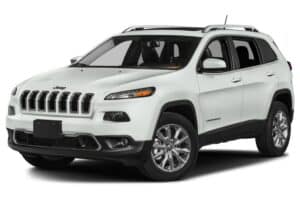
- 2015-2017 Chrysler 200
- 2013–2016 Dodge Dart
- 2016-2020 Fiat 500X
- 2017-2020 Fiat Toro
- 2017-2020 Dodge Journey
- 2014-2020 Jeep Cherokee
- 2017-2020 Jeep Compass
- 2015-2020 Jeep Renegade
- 2015-2020 Ram Promaster City
There are widespread allegations in these class action lawsuits that this particular engine model burns excessive oil, and when the oil gets low the engine can stall or is damaged.
Fiat Chrysler has claimed burning a quart of oil about every 1,000 miles is “normal.” Beyond corporate denials of anything being wrong, there have been various claimed fixes of these engines, but customer complaints continue.
A class-action lawsuit over the oil and stalling was filed in the United States District Court for the Eastern District of Michigan on April 19, 2020 (Amber Wood, Ashley Schuchart, Karen Burke, and Danielle Coates v. Fiat Chrysler US LLC., 5:20cv11054), along with several other related actions.
You should have received a notice describing your option of participating in the settlement or bringing your own claim and “opting out” of that class action settlement or the litigation. The current deadline to opt-out of the settlement is October 21, 2022. This deadline has now passed, which means if the settlement is approved, you may not have the ability to bring an individual lawsuit over these issues.
For more information on the class action settlement, please visit the official settlement administrator website.
What is Happening with the Tigershark Class Action Litigation?
IMPORTANT UPDATE — On March 23, 2022, the parties filed a joint motion for preliminary approval of a nationwide class action settlement, which will potentially impact millions of vehicles with the Tigershark engine. The motion for preliminary settlement approval was granted on June 7, 2022.
The case has been certified for settlement purposes to proceed on behalf of the following Settlement Class:
All individuals who purchased or leased in the United States one of the following vehicles equipped with a 2.4L Tigershark engine: model years 2015-2017 Chrysler 200; model years 2013-2016 Dodge Dart; model years 2014-2019 Jeep Cherokee manufactured prior to July 2018; model years 2015-2018 Jeep Renegade; model years 2017-2018 Jeep Compass; model years 2015-2018 Ram Promaster City; and model years 2016-2018 Fiat 500x.
What Happens with Lemon Law Class Actions and How Do Customers Protect Themselves?
In a class action lawsuit, if the class is certified by the Court, the lawyers who bring the class action will automatically represent you.
You should have received notice that the case was certified by the Court to proceed as a class action for settlement purposes and of your right to opt out of the class by a certain deadline (October 21, 2022) and your various options. This deadline has now passed.
Typical class action settlement options are:
- do nothing, in which case you may get nothing but be bound by the settlement
- submit a class action claim form if requested and get whatever relief is made available, and you are also bound by the settlement, or
- opt out and pursue your own individual claims, in which case you are not bound by the settlement but cannot participate in any of the relief that is being offered to class members.
 Sometimes a class action settlement may provide significant benefits and does not require much effort to participate. It also comes with no risk, as the claims have been resolved.
Sometimes a class action settlement may provide significant benefits and does not require much effort to participate. It also comes with no risk, as the claims have been resolved.
For more information on the class action settlement, please visit the official settlement administrator website.
But for people who have had significant damages or have really strong lemon law protections, opting out and pursuing one’s individual case or negotiations may provide them an opportunity to receive a better recovery in a shorter period of time, but with (as always) no guarantee they will get anything in a settlement.
When it comes car class actions what to do can be a complicated decision, as it can depend on many factors and a real understanding of what the law provides. Here are some important factors to weigh with your consumer lemon law lawyer:
- Do you still own the car? (You may still have claims if you don’t)
- Are you willing to consider the opportunity of getting a greater recovery as compared to taking what is offered in the settlement?
- How old is your car, and what is the mileage?
- Did your car burn oil?
- Did it ever stall?
- Did you ever have any other problems? What were/are they?
- How long was your car in the shop for each repair and in total?
- Were you ever told the problems you experienced were “normal.” by Fiat Chrysler dealers or Fiat Chrysler?
- Did you have repeated repairs attempted?
- When did the problems start?
- When did you first take it in for repair?
- Where did you buy the car?
- Did you ever ask them to buy it back before?
- If they offered to buy it back, what deductions did they demand?
All these questions and more should be weighed by a qualified lemon law attorney. Please note we are not counsel for the Settlement Class or the settlement administrator.
You might have a lemon law claim for damages if you opted out of the class action settlement. For a free consultation, call 1-855-678-6881. One of our team members can explain your rights. You must have chosen to opt-out of the settlement for his option.
Tigershark Class Action Lawsuit FAQ
What is the class action lawsuit name and case number?
Amber Wood, Ashley Schuchart, KarenBurke, and Danielle Coates v. Fiat Chrysler US LLC., 5:20cv11054
When and where was a class action lawsuit filed?
The case was filed in the United States District Court for the Eastern District of Michigan on April 19, 2020.
Other related cases include:
- Durham v. Fiat Chrysler Automobiles, N.V. et al., Case No. 5:20-cv-11040 (E.D. Mich.) filed on April 27, 2020.
- Watson v. Fiat Chrysler US, LLC, Case No. 2:20-cv-11069 (E.D. Mich.), filed on May 1, 2020, was originally assigned to Judge Mark A. Goldsmith but was reassigned to Judge Levy on May 27, 2020. See Case No. 2:20-cv-11069 at ECF No. 11.
- Schmid et al. v. Fiat Chrysler US LLC, Case No. 2:20-cv-11090 (E.D. Mich.), filed on May 5, 2020, was originally assigned to Judge Mark A. Goldsmith but was reassigned to Judge Levy on May 27, 2020. See Case No. 2:20-cv-11090 at ECF No. 23.
- Davis et al. v. Fiat Chrysler US LLC, Case No. 5:20-cv-11223 (E.D. Mich.), filed on May 18, 2020, was originally assigned to Judge Robert H. Cleland but was reassigned to Judge Levy on May 27, 2020. See Case No. 5:20-cv-11223 at ECF No. 3.
- Romanchuk et al. v. Fiat Chrysler US LLC, Case No. 2:20-cv-11233 (E.D. Mich.), filed on May 19, 2020, was originally assigned to Judge Gershwin Drain but was reassigned to Judge Levy on July 28, 2020. See Case No. 2:20-cv-11233 at ECF No. 14.
- Gizzarelli et al. v. Fiat Chrysler US LLC, Case No. 2:20-cv-11442 (E.D. Mich.), filed on June 3, 2020, was originally assigned to Judge Terrence Berg but was reassigned to Judge Levy on June 5, 2020. See Case No. 2:20-cv-11442 at ECF No. 8.
- Christman v. Fiat Chrysler US LLC, Case No. 2:20-cv-11480 (E.D. Mich.) (“Christman”), was filed originally in state court on June 5, 2020, whereafter it was removed to this Court by Fiat Chrysler US, where it is now pending before Judge Levy. See 2:20-cv-11480 at ECF 8.
- Weiner v. Fiat Chrysler US LLC, Case No. 5:20-cv-11968 (E.D. Mich.), filed on July 21, 2020, was originally assigned to Judge Sean Cox but was reassigned to Judge Levy on July 27, 2020. See 5:20-cv-11968 at ECF No. 3.
The parties stipulated and agreed that all above cases shall be consolidated with Wood et al. v. Fiat Chrysler US LLC, for all purposes, including trial. A Consolidated Master Class Action Complaint was filed on October 21, 2020.
What do the Plaintiffs allege is the defect in the Tigershark class action lawsuit?
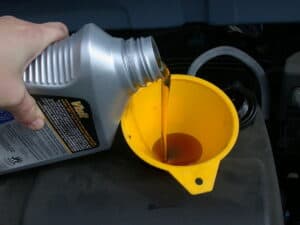 Plaintiffs allege that between 2013 and 2020, certain Chrysler, Jeep, Dodge, and Fiat model vehicles with the 2.4L Tigershark MultiAir II 4-cylinder engines sold by Fiat Chrysler US LLC contain a design and/or manufacturing defect that caused them to consume abnormally high amounts of oil. Also, when the oil gets low, the engine can stall or is damaged.
Plaintiffs allege that between 2013 and 2020, certain Chrysler, Jeep, Dodge, and Fiat model vehicles with the 2.4L Tigershark MultiAir II 4-cylinder engines sold by Fiat Chrysler US LLC contain a design and/or manufacturing defect that caused them to consume abnormally high amounts of oil. Also, when the oil gets low, the engine can stall or is damaged.
The Tigershark engines have caused customers to pay for the extreme amounts of oil consumed from everyday driving. These defective engines could cause these engines to stall unexpectedly while driving, which in other recall notices, Fiat Chrysler has indicated can make the vehicles potentially unsafe.
What are the affected vehicle models identified in the class action lawsuit?
Vehicles identified as including the Tigershark 2.4 liter engine include the following models:
2015-2017 Chrysler 200
2014-2020 Jeep Cherokee
2017-2020 Jeep Compass
2015-2020 Jeep Renegade
2017-2020 Dodge Journey
2013–2016 Dodge Dart
2016-2020 Fiat 500X
2017-2020 Fiat Toro
2015-2020 Ram Promaster City
What does the class action lawsuit claim is the nature of the defect in the affected vehicles?
The above-identified vehicles contain several alleged defects. One is a significant design and/or manufacturing defect in their engines that causes them to improperly burn off and/or consume abnormally high amounts of oil. As a result of this oil consumption defect, these vehicles can shut down during the course of their normal operation — placing the occupants and surrounding vehicles at an increased risk of serious injury and death.
Fiat Chrysler has expressly acknowledged in other unrelated safety recalls that “an engine stall could cause a crash without prior warning.”
The oil consumption defect causes excess oil to enter the vehicles’ exhaust systems. Oil in the exhaust systems will compromise the oxygen sensors and the catalytic converter, which converts the harmful emissions produced during the combustion process into less harmful gases, resulting in the second excess emissions defect.
As a result of this defect, vehicles may have been emitting harmful emissions at levels that, unknown to the consumer, are in excess of state and federal regulations. There was no indication of the excess emissions defect until Fiat Chrysler disclosed in an SEC filing that
[i]n connection with internal testing, we determined that approximately 1 million vehicles equipped with the 2.4L Tigershark engine may have excess tailpipe emissions.
The third defect arises because the sudden engine shutoffs caused by the oil consumption defect could have been avoided if Fiat Chrysler’s oil indicator system alerted drivers that their engine oil was running low, but it did not. This oil indicator defect means that drivers of the affected vehicles may only become aware of a dangerously low engine-oil level after it causes an engine stall or shutdown.
In fact, these vehicles may shut down without warning even when the oil change indicator does not yet recommend an oil change.
How many vehicles are impacted by this defect?
According to publicly available data, the total number of Class Vehicles sold is approximately 3.2 million vehicles.
How does the defect violate the affected vehicle warranty?
Fiat Chrysler provided consumers and members of the nationwide class with written warranties wherein Fiat Chrysler promised to fix any defect in design or manufacture during the applicable warranty period. Fiat Chrysler also expressly warranted in advertisements and consumer-facing communications, including on the window stickers themselves that were affixed to the vehicles, that the vehicles were safe and reliable.
Fiat Chrysler is alleged to have breached these express warranties because the vehicles contain the oil consumption, oil indicator, and excess emissions defects.
Fiat Chrysler also impliedly warranted (obligations the law “implies” in the sale, even if not directly stated) that the vehicles would conform to the descriptions promised in Fiat Chrysler’s advertisements and consumer-facing communications. Fiat Chrysler breached the implied warranty of merchantability because the vehicles allegedly suffered from the oil consumption defect, oil indicator defect, and excess emissions defect. Based on these defects, the complaint alleges the vehicles are defective, unmerchantable, and unfit for their ordinary, intended purpose.
Fiat Chrysler has known about the oil consumption and oil indicator defects, as hundreds of vehicle owners and lessees have reported instances of their vehicles shutting down without warning due to low oil levels and/or pressure. Fiat Chrysler has also known about the excess emissions defect through its own pre-release testing of the vehicles or the testing reflected in its recent SEC filings.
Do All the Tigershark Engines Excessively Burn Oil?
The extent of the oil burning and other defects appears common to the engine.
Are Cars with the Tigershark Engine Unsafe?
Any car that stalls or has a significant chance of stalling can be considered unsafe.
Fiat Chrysler has not publicly admitted these vehicles are affected by the three defects discussed above or has engaged in efforts to conceal some of them by describing the excess oil consumption as “normal” in a technical service bulletin.
Have the Tigershark class action lawsuits been settled?
Yes. On March 23, 2022, the parties filed a joint motion for preliminary approval of a nationwide class action settlement, which will potentially impact millions of vehicles with the Tigershark engine. The motion for preliminary settlement approval was granted on June 7, 2022.
The terms of the settlement are described in the notice of class action settlement, which was recently mailed out to class members. For more information on the class action settlement, please visit the official settlement administrator website.
All Settlement Class Members shall have the right to opt out of the Settlement Class at any time during the opt-out period, the deadline of which is October 21, 2022. This deadline has now passed, which means if the class action settlement is approved, you may not have the ability to bring an individual lawsuit over these issues.
To be effective, the Request for Exclusion must be sent via first-class U.S. mail to the specified address and shall state: (i). The Settlement Class Member’s full name and current address; ii. The model year and Vehicle Identification (“VIN”) of his/her/its Class Vehicle(s) and the approximate date(s) of purchase or lease; and (iii). His/her/its desire to be excluded from the Settlement and from the Settlement Class.
Is there anything I need to do at this time? When do I need to Decide What to Do?
For more information on the class action settlement, please visit the official settlement administrator website.
If you decide you want to bring your own lemon law claim, you can opt-out of the class action. The deadline to do so is October 21, 2022. This deadline has now passed.
You might have a lemon law claim for damages if you opted out of the class action settlement. For a free consultation, call 1-855-678-6881. One of our team members can explain your rights. You must have chosen to opt-out of the settlement for his option.
What Happens If I Don’t Opt Out of the Class Action Lawsuit or Settlement?
It depends on how the settlement is structured, but in general, if you do not opt out of the settlement, you will be bound by its terms. You will receive any benefits offered in the settlement, either automatically or by filling out and submitting a claim form. However, you will not be able to get more than the class action settlement benefits or bring any individual case over the defect in the Tigershark engine, except possibly for personal injury claims.
Why Should I Opt Out of Any Certified Class or Settlement?
Some class actions provide significant benefits without the need to do much other than complete a claim form. And because the matter is settled, as long as the Court approves the settlement, you will get the relief that is described in the class notice.
However, other people who are informed of their legal rights may decide that the relief offered as part of the class action settlement is not adequate, that they do not want to wait to get relief, or that they would be entitled to get more if they do not participate in the class action settlement and go their own way with their own lawyer.
Your ability to pursue an individual claim can depend on a variety of factors, such as how old your car is, whether you can document the defect that occurred in your car, whether you have taken it in for repairs on more than one occasion, do you still own the car, is it still under warranty and where you bought the car – among other factors.
Depending on the answers to those questions, while there is no guarantee you will receive any recovery if you opt out, you may have the opportunity to receive significant relief, including a vehicle repurchase and possible penalties.
What is the Song Beverly Warranty Act?
The Song-Beverly Warranty Act, California Civil Code §1793.2(d)(1), is a California state law that requires manufacturers to repair defects after a reasonable number of repair attempts. What is “reasonable” is not part of hard and fast rules – safety defects should be fixed immediately, for example.
The defects have to be important and must “substantially impair the vehicle’s use, value, or safety.” Civil Code §1793.22(e)(2). Under Civil Code §1793.2(d)(1), manufacturers are required to promptly offer a repurchase or replacement of the Vehicle they cannot fix in a reasonable time frame.
In addition, Civil Code §1794(c) and §1793.2(d) provide that customers are entitled to a civil penalty in an amount up to two times the actual damages if manufacturers acted “willfully” (meaning knowingly, but not necessarily with wrongful or malicious intent) in ignoring or failing its obligation under Song-Beverly.
Finally, under Civil Code §1794(d), manufacturers must pay the plaintiff’s attorney’s fees and costs as part of the settlement, as the Song-Beverly Act is a pro-consumer fee-shifting statute.
What Relief Could I Get If I Opt Out and Bring an Individual Lawsuit Over the Tigershark Defect?
Current or former owners of these vehicles who reside in California should be aware that the California lemon law and other state and federal laws may force Fiat Chrysler to either “buy the vehicle back” or provide other important compensation.
 Under California’s lemon law, qualifying “lemons” must be bought back, and that can mean a large cash refund and payoff of your loan or lease. The refund could be as much as everything you paid for the vehicle and everything you owe: monthly payments, down payments, tax, finance charges, license, registration, etc.
Under California’s lemon law, qualifying “lemons” must be bought back, and that can mean a large cash refund and payoff of your loan or lease. The refund could be as much as everything you paid for the vehicle and everything you owe: monthly payments, down payments, tax, finance charges, license, registration, etc.
In fact, you could even qualify for two times your money back, depending on the circumstances. What Fiat Chrysler would have to buy it for has absolutely nothing to do with how much the vehicle is currently worth. There is a formula in the law that starts with you getting all your money back and then taking certain deductions and exclusions away from your payment. Those refunds and exclusions are difficult to understand and can be fought against by knowledgeable consumer attorneys. Don’t settle for small dollar payments or more possible fixes without speaking to a qualified consumer attorney who has your individual best interest in mind.
What are my options if I opted out of the class action settlement?
You might have a lemon law claim for damages if you opted out of the class action settlement. For a free lemon law consultation, call 1-855-678-6881. One of our team members can explain your rights. You must have chosen to opt out of the settlement for this option.
For more information on the class action settlement, please visit the official settlement administrator website.
Other Lemon Law Class Actions
Dodge Ram 1500 EcoDiesel EGR Class Action Over Fires and Recalls
Kia and Hyundai Oil Consumption Class Action Lawsuit
